Andhra Pradesh
Home to one of the richest temples in the country, the Tirupati Balaji temple, as well as the historic Sri Mallikarjuna Swamy Temple and the Srisailam temple, which houses one of Lord Shiva's 12 Jyotirlingas.
Features breathtaking hill stations like Araku Valley, known for its coffee plantations, and stunning beaches along the coast of Visakhapatnam, which also hosts mangrove forests and marine life.
Tourists can explore the Borra Caves, with their unique geological formations, and enjoy scenic train rides through picturesque landscapes.
01.Tirumala

Tirumala is a sacred hill town located in the Chittoor district of
Andhra Pradesh, India.
It is world-famous for housing the
Sri Venkateswara Swamy Temple (Tirupati Balaji Temple), one of the
most visited pilgrimage centers in the world.
Lord Sri Venkateswara, also known as Srinivasa, Balaji, and
Veṅkaṭachalapati, made Tirumala his abode five thousand years ago.
Even before him, it was Lord Varahaswami who had made Tirumala his
abode.
Since then, many devotees have continued to construct grand
entrances on the ramparts of the temple over generations.
The temple complex is spread over 16.2 acres of land.
Tirumala isn't just about Supreme deity ,Lord Venkateswara made Human soul like is in Heaven ,piligrims feel his presence all over temple.
02.Srivari padalu
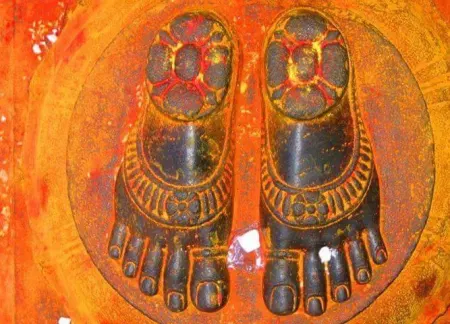
Sri Vari Padalu, also known as Divine Footprints of Lord Venkateswara, is a revered spiritual spot located on Narayanagiri Hill, one of the highest points in Tirumala. According to legend, it is believed that Lord Venkateswara first set His divine feet here when He descended to Earth. The rock surface bears the impression of His footprints, making it a sacred site for devotees.
03.Sri Varahasamwy temple
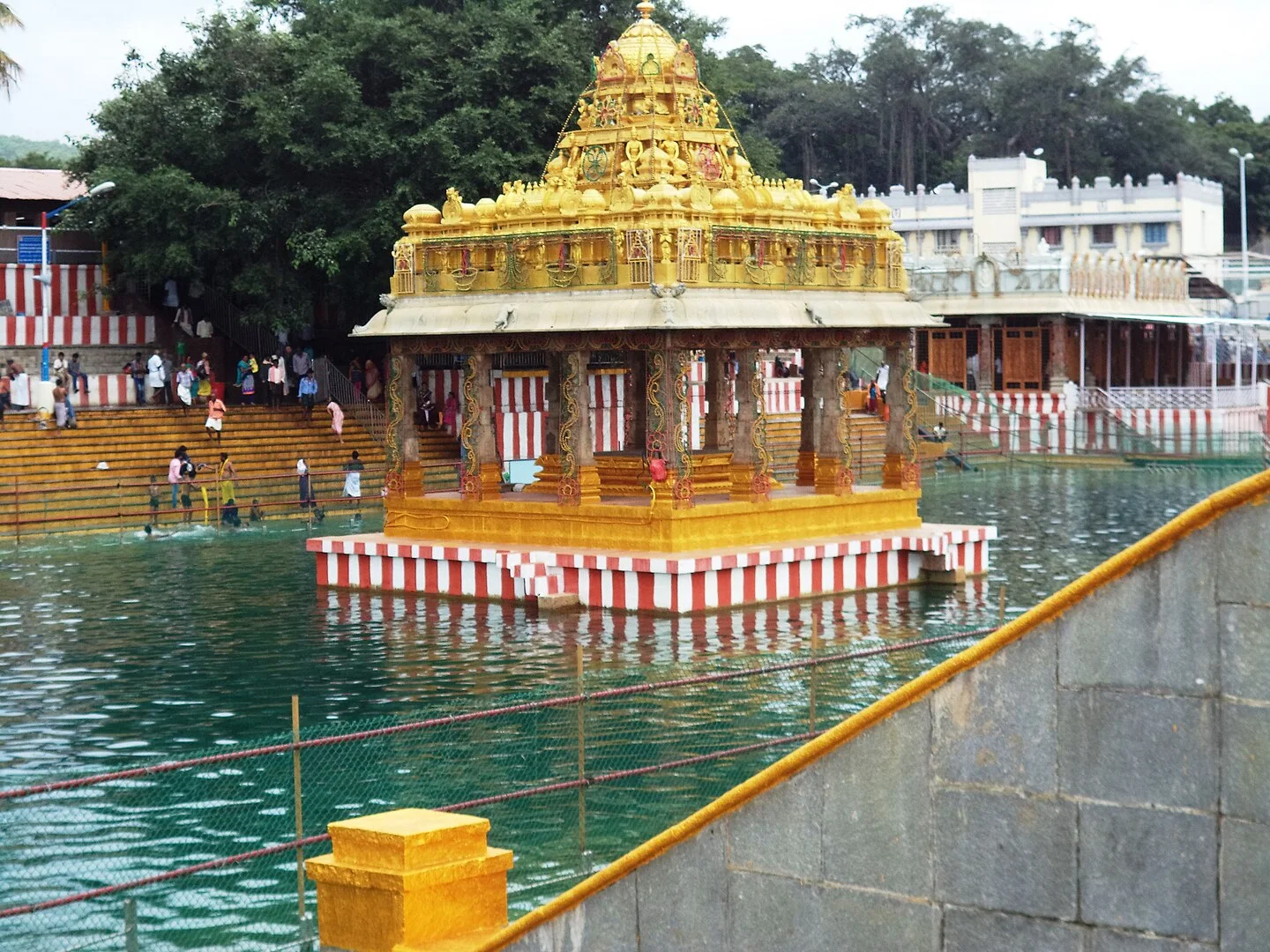
The Sri Varahaswamy Temple, also called Bhu Varahaswamy Temple, is
a Hindu temple dedicated to the god Varaha, situated at hill town
of Tirumala in Tirupati, located in Tirupati district of Andhra
Pradesh state, India.
According to legend, before visiting Lord Venkateswara, devotees
are supposed to first worship Sri Varahaswamy. It is believed that
Lord Venkateswara took permission from Sri Varahaswamy to reside
in Tirumala. Devotees who take a dip in Swami Pushkarini also pay
respects here before proceeding for darshan of Balaji. Offering
Naivedyam (food offerings) to Varahaswamy is considered auspicious
before offering to Venkateswara.
04.Sri Padmavathi Ammavaru ,tiruchanur
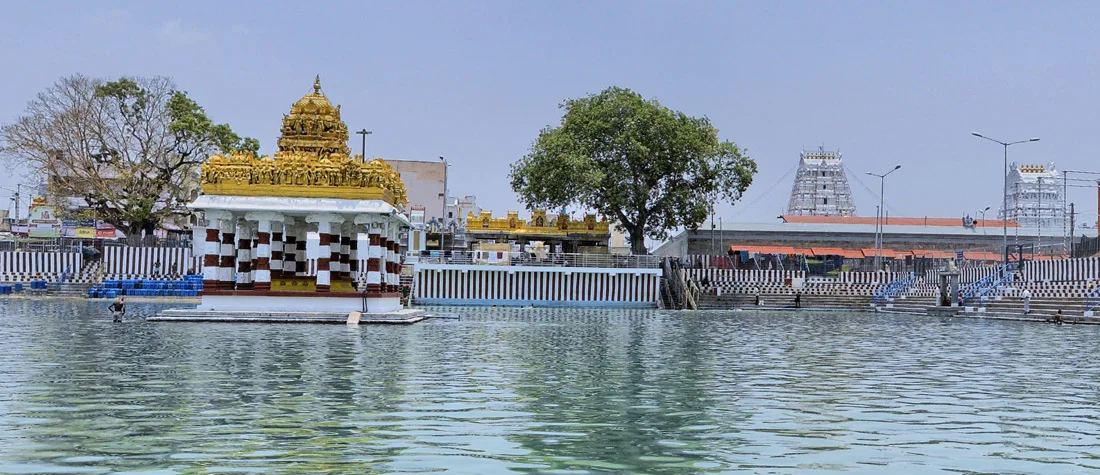
Tiruchanoor, is one of the oldest pilgrim towns located 5km away from Tirupati, is abode of Goddess Sri Padmavathi Devi, the beloved consort of Lord Venkateswara. This pilgrim centre is popularly known as “Alarmelmangapuram” (Alar-Lotus, Mel-top, Manga-Goddess, Puram-town) or Alimelumangapuram. According to temple legend as Goddess Mahalakshmi emerged on the golden lotus as Padmavathi Devi located at the centre of Padmasarovaram-the temple tank, this place became famous by the name “Alarmelmangapuram”. There is a strong belief among the pilgrims that they should pave visit to Padmavathi and seek Her divine blessings before they visit Lord Venkateswara as Tirumala during their pilgrimage.
05.silathoranam(natural arch)
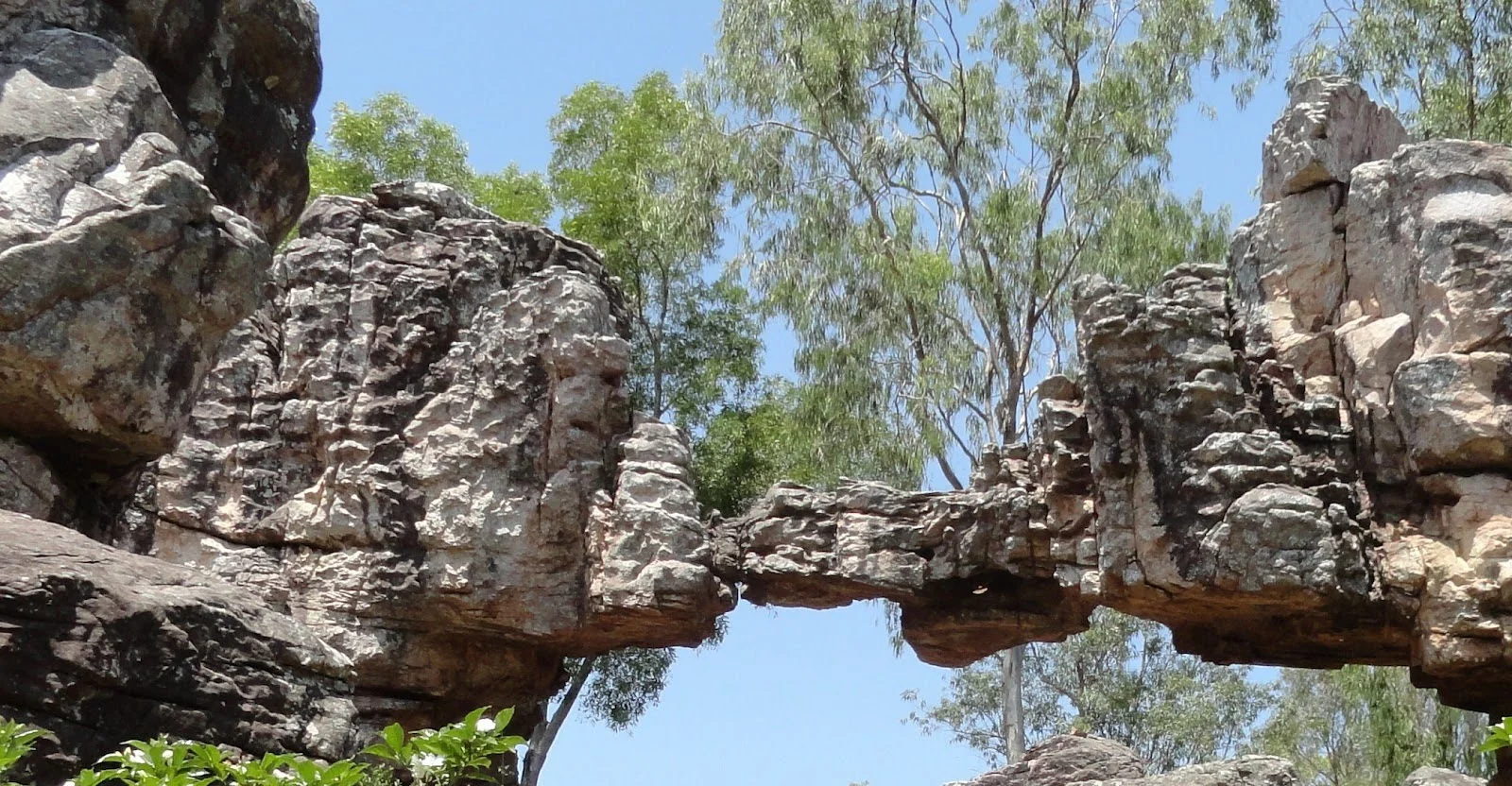
Silathoranam is a natural stone arch bridge & is believed to be the path to heaven & was used by Lord Vishnu himself to descend upon Earth, as per legend. : Here sila means 'rock' and thoranam means a garland strung over a threshold, connecting two vertical columns or an 'arch' as in this case. The shape of the arch is said to resemble the divine symbols of Lord Vishnu, specifically his conch (shankhu), his discus (chakra), and the hood of the divine serpent, Adisesha.
06.Bedi-Anjaneya Swamy temple
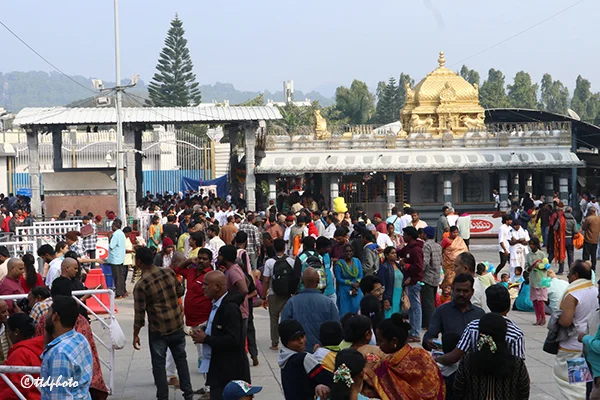
The Sri Bedi Anjaneya Swamy Temple is a significant Hanuman temple in Tirumala, located directly opposite the main entrance of the Lord Venkateswara Swamy Temple. Its uniqueness lies in its idol of Hanuman, whose hands are handcuffed ("Bedi") as per a local legend where his mother, Anjana Devi, tied him to prevent him from leaving to search for a camel. The temple is open daily from 5:30 AM to 9:00 PM, and after offerings to the main deities, the sacred food is also brought to this temple
07.iSCKON TEMPLE
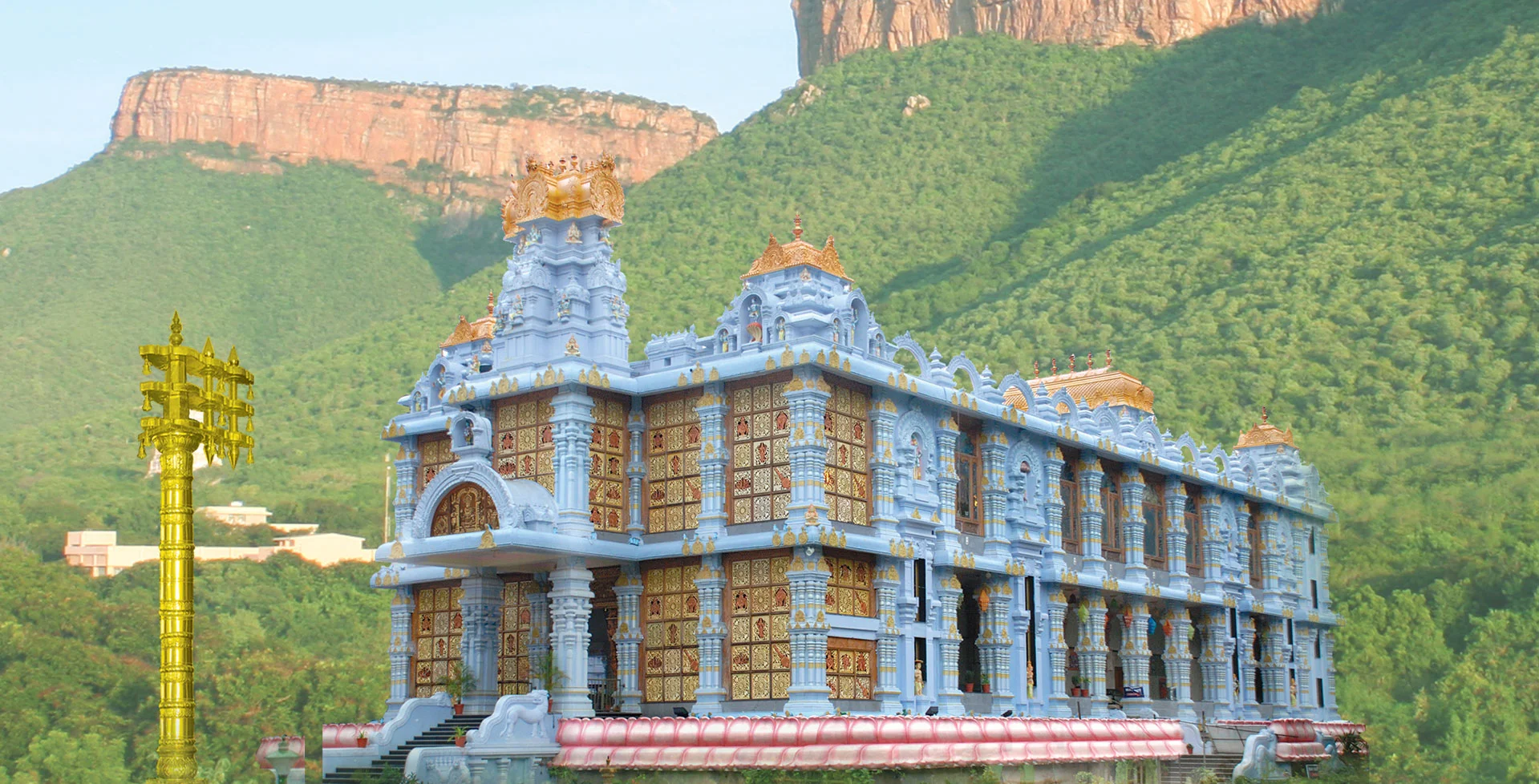
ISKCON (International Society for Krishna Consciousness) Krishna Temples are located all over the world. Although, in almost every important city of India, there is an ISKCON Temple, ISKCON Temple in Tirupati is especially popular. Its architecture and location makes it is even more attractive to the devotees. The idea for this temple germinated in the year of 1974 – 1975, when his holy Srila Prabhupada visited Tirumala- Tirupati on the request of Andhra Pradesh Government. Impressed with the spiritual atmosphere of the place and after seeing thousands of devotees visiting every day, he saw this Tirupathi as an ideal place to promote the teachings of Bhagwat-Gita and Lord Krishna while in turn creating an environment of amity throughout the world.
08.Sri Kalahasti temple
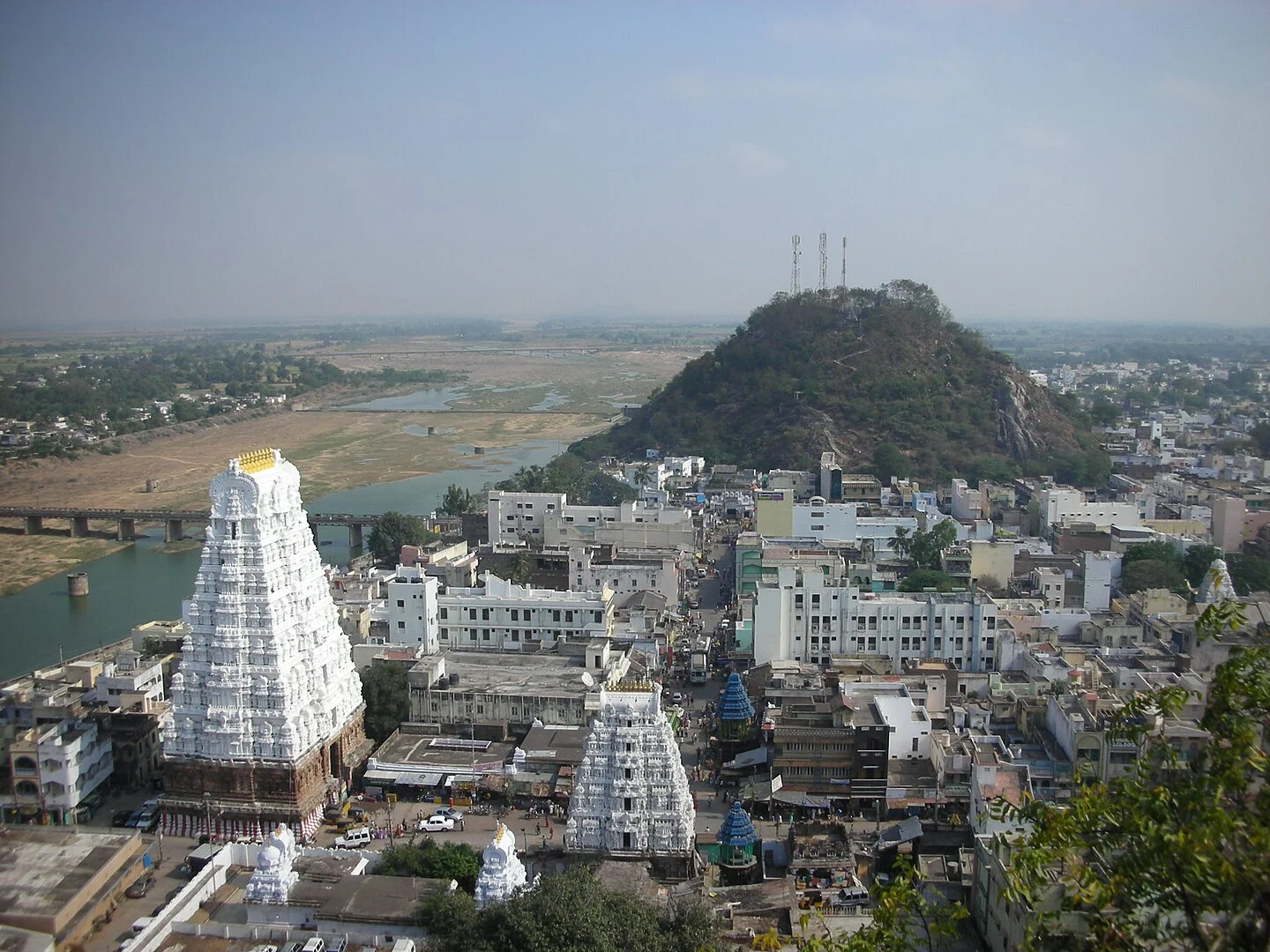
Srikalahasti is a town in Andhra Pradesh, India, famous for the Srikalahasteeswara Temple, a significant Hindu shrine dedicated to Lord Shiva and one of the Pancha Bhoota Sthalas. The temple, also known as the "Kailasam of the South" or "Kashi of the South," is particularly known for its Vayu Lingam. The town and temple get their name from the legend of a spider (Sri), a serpent (Kala), and an elephant (Hasti) who worshipped Lord Shiva there. It is one of the Pancha Bhuta Sthalas, representing the Vayu (air) element, and is famous for its mystical Vayu Linga, which is believed to flicker even without a breeze. The temple is also renowned for its Rahu Kethu poojas and is sometimes called the "Kailas of the South" or "Dakshina Kailasam".
09.kanakadurga ammavaru,Vijayawada
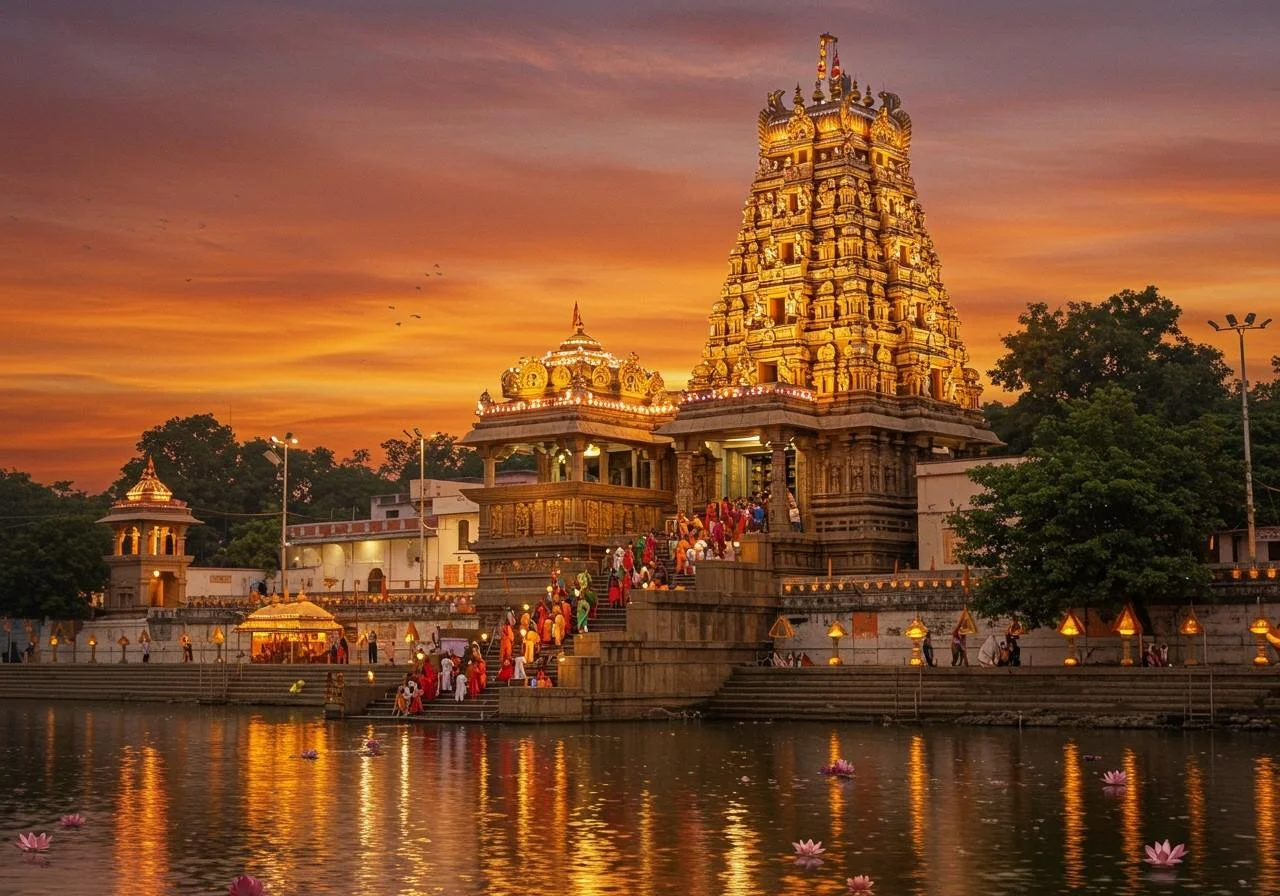
The Kanaka Durga Temple boasts a history spanning centuries. Ancient texts and scriptures mention the temple, linking it to Arjuna from the Mahabharata. Legend says he constructed the temple after receiving blessings from Goddess Durga. Various abhishekams (ritual baths) using milk, honey, and turmeric are performed on the deity. Offering sarees and bangles to the goddess is a traditional practice believed to bring blessings and prosperity. At the Kanaka Durga temple, the enchanting 4-foot-high (1.2 m) icon of the deity is bedecked in glittering ornaments and bright flowers. Her icon here depicts her eight-armed form, each holding a powerful weapon, in a standing posture over the demon Mahishashura and piercing him with her trident. The goddess is the epitome of beauty.
10.kanipakam
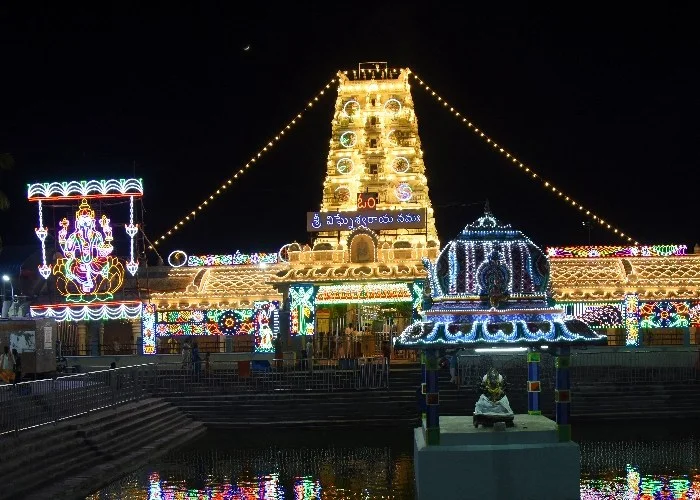
Sri Varasiddhi Vinayaka Swamy Temple is nestled in the Kanipakam Village of Chittoor District. This ancient Ganesha Temple is also known as Kanipakam Vinayaka Temple. The Prime deity of this Temple is Sri Varasiddhi Vinayaka Swamy is a swayambhu, self-manifested idol. A very interesting fact is associated with this temple is that Sri Vinayaka Idol size is increasing day by day. It is believed that the idol will be growing in size until the end of Kaliyuga and then Sri Vinayaka will appear in person. The well from where Sri Varasiddhi Vinayaka manifested is still exist in the temple. The holy water from the well is distributed among the devotees as prasadam in this temple.
11.Pandava Theertham
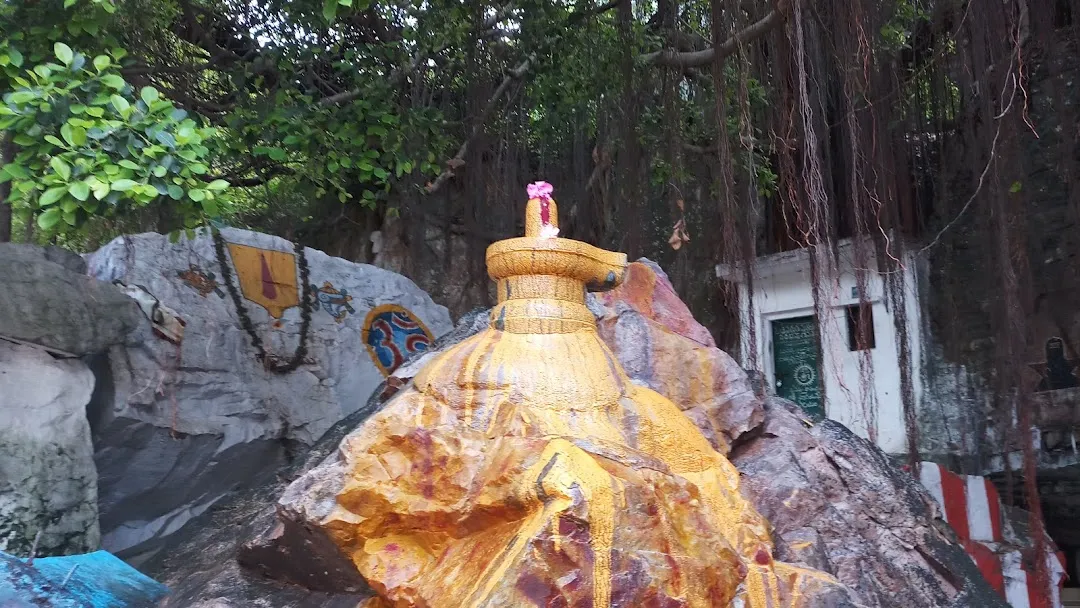
This theertham that has a story of salvation also holds some connection with Pandavas. It is believed that during the 12 years of exile in the fores two Pandava brothers, Yudhishtra and Arjuna took bath at this place. Pandava Theertham is situated at the bottom of the hill and faces the Narishma Hill. Bathing in this water is really refreshing and is said to wash away the evils and confer good fortune. There is a platform built by the temple governance where the running water is diverted for devotees to take the water first in hand. Every pilgrim visiting Tirupati must and should visit this place. The best time for visiting this place is during the rainy season, this place looks even more beautiful with greenery around and with white water gushing out of the rocks.
12.Japali Hanuman temple
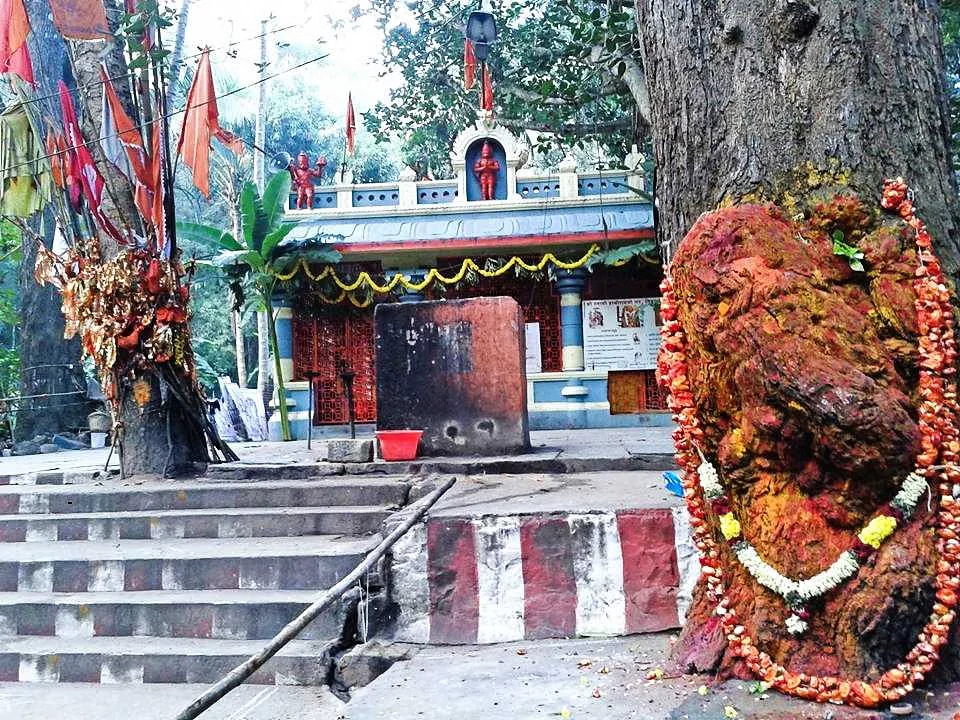
Tirupati Akasha Ganga is a sacred waterfall and holy teertham located in the Seshagiri hills, about 3 to 5 km from the Tirumala Temple. Believed to originate from Lord Vishnu's or Lord Venkateswara's lotus feet, its holy waters are used for all rituals, including the abhishekam (bathing) of the main deity at the Tirumala temple. The site is considered very sacred and is a beautiful, relaxing place to visit, with water flowing year-round.
12.Akasaganga,Tirumala
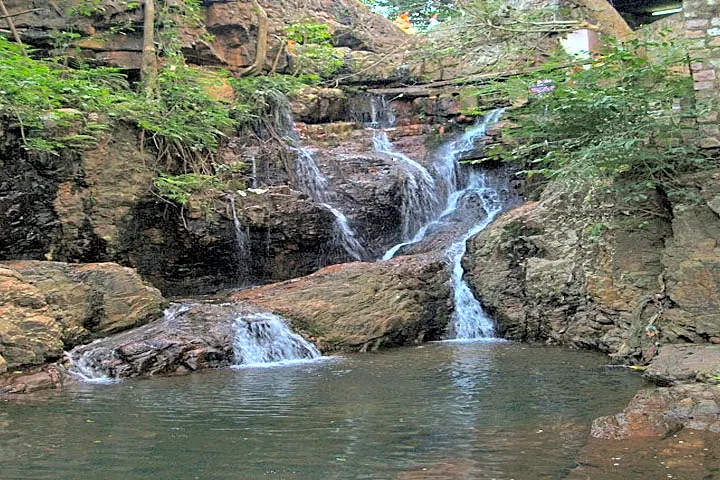
Tirupati Akasha Ganga is a sacred waterfall and holy teertham located in the Seshagiri hills, about 3 to 5 km from the Tirumala Temple. Believed to originate from Lord Vishnu's or Lord Venkateswara's lotus feet, its holy waters are used for all rituals, including the abhishekam (bathing) of the main deity at the Tirumala temple. The site is considered very sacred and is a beautiful, relaxing place to visit, with water flowing year-round. You can reach Akasha Ganga by APSRTC bus and taxi services from Tirupati. A short trek of 5-10 minutes is required to reach the waterfall. You can experience the beauty of the waterfall, but sometimes the pathway to the foot of the waterfall may be closed, allowing you to only see it from the temple vicinity.
13.Sri Venugopala swamy temple
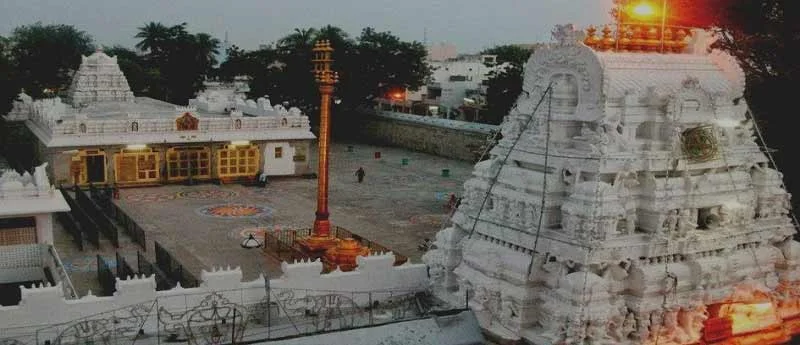
Sri Venu Gopala Swamy Temple is located while on the way to Papavinasam, which is about 5 km from Main Temple Tirumula. The devotees can have darshan of Lord Sri Krishna in this serene location temple which is run by the Swamy Hathiramji Mutt. Every pilgrim visiting Tirumala Tirupati must and should visit Sri Venu Gopala Swamy Temple and seek blessings from Venu Gopala Swamy. Devotees can plan the visit to this Holy Shrine after finishing Darshan and It is easy to reach this place.
14.SriSailam mallikarjuna Swamy
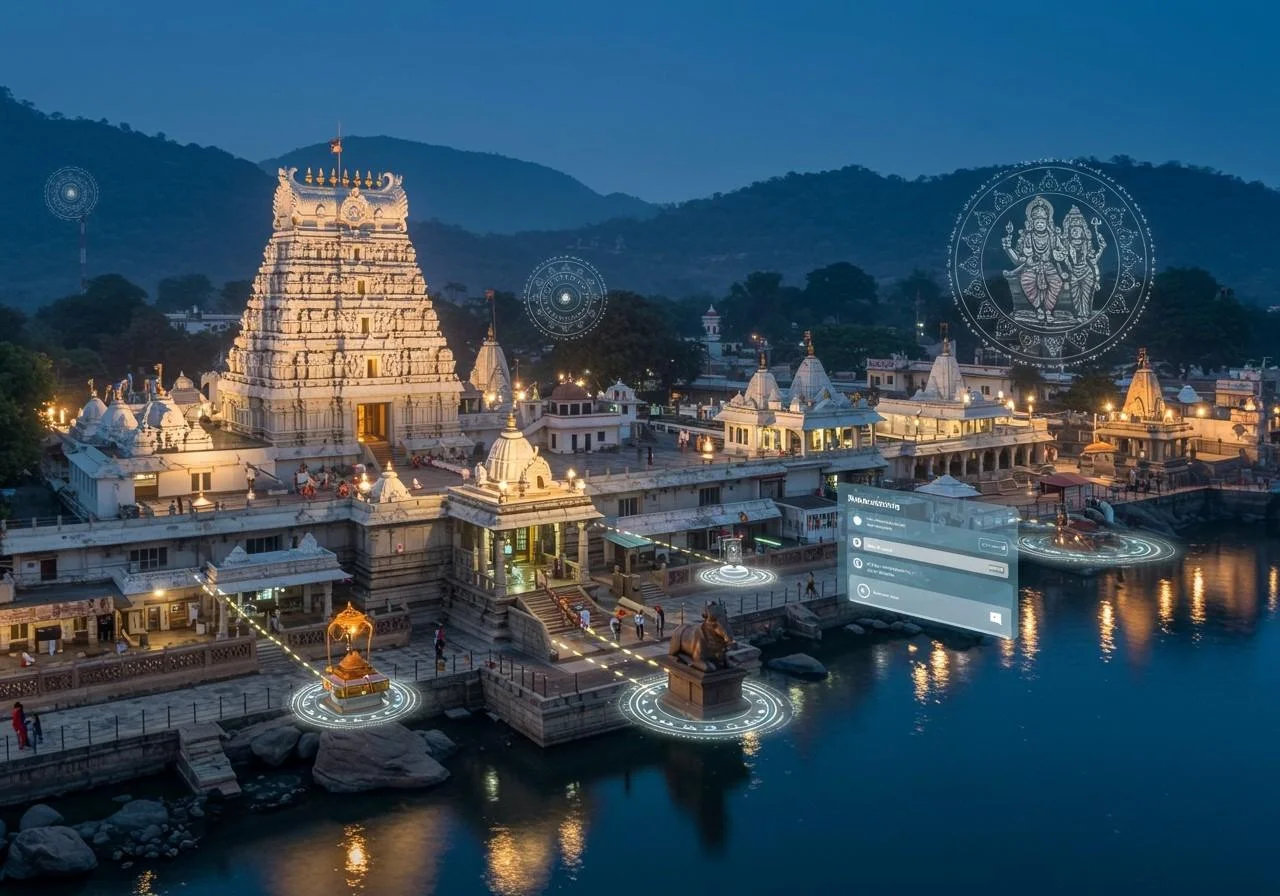
Srisailam is a sacred temple town in Andhra Pradesh, India, renowned for the Mallikarjuna Swamy Temple, which is both a Jyotirlinga dedicated to Lord Shiva and the Bhramaramba Devi temple, one of the 18 Maha Shakti Peethas. Located on the banks of the Krishna River, this ancient site holds immense religious significance for both Shaivism and Shaktism, making it a unique pilgrimage destination where the divine energies of Shiva and Shakti coexist. It is notable for housing the Mallikarjuna Swamy Lingam (the second of the 12 Jyotirlingas) and the temple of Sri Bhramaramba Devi (the sixth of the 18 Maha Shakti Peethas) under one roof. It is also recognized as a "Paadal Petra Sthalam," a place where a divine being (specifically, the neck of Devi) fell, according to legend.
15.Araku Valley
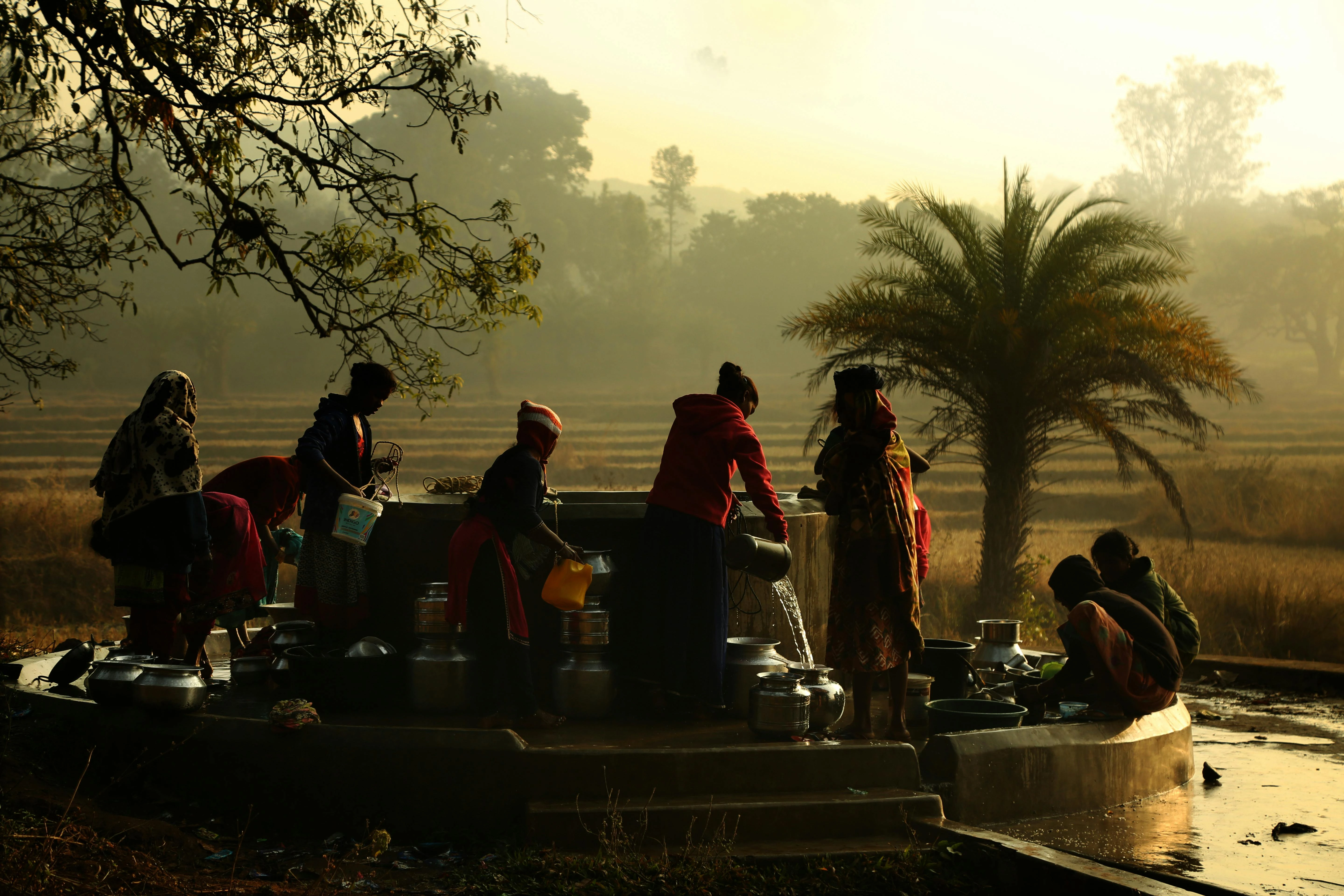
Araku Valley is a picturesque hill station located in the Eastern
Ghats of Andhra Pradesh, about 120 km from Visakhapatnam (Vizag).
It is often called the
“Ooty of Andhra Pradesh” because of its cool climate,
lush greenery, and coffee plantations.
Surrounded by thick forests, waterfalls, and valleys, it's a
popular getaway for nature lovers.
Home to many indigenous tribes, with the Tribal Museum showcasing
their traditions, arts, and crafts.
Chaparai (Dumbriguda) Falls, Katiki Falls, and Ananthagiri
Waterfalls are popular spots. Trekking and Hiking.
16.Gandikota_canyon
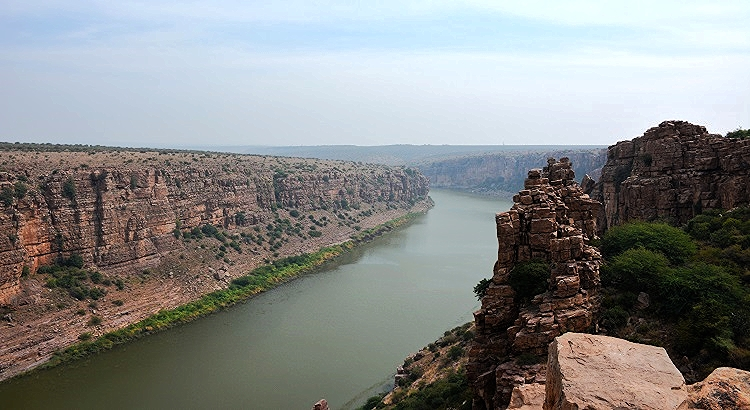
Gandikota Canyon, often called the
“Grand Canyon of India”, is a breathtaking gorge
formed by the Penna River cutting through the Erramala Hills in
Kadapa district, Andhra Pradesh.
The main attraction is the massive canyon with steep red granite
rocks and a stunning view of the Penna River flowing through it.
Sunrise and sunset are particularly mesmerizing here.
Beautiful temples inside the fort showcasing Vijayanagara-style
architecture.
Trekking, camping, and kayaking are popular around the gorge,
making it a hub for adventure seekers.
Belum Caves (second-largest caves in India) and Yaganti Temple are
often paired with Gandikota trips.
For Pleasant weather, perfect for sightseeing and camping.
17.Lambasingi
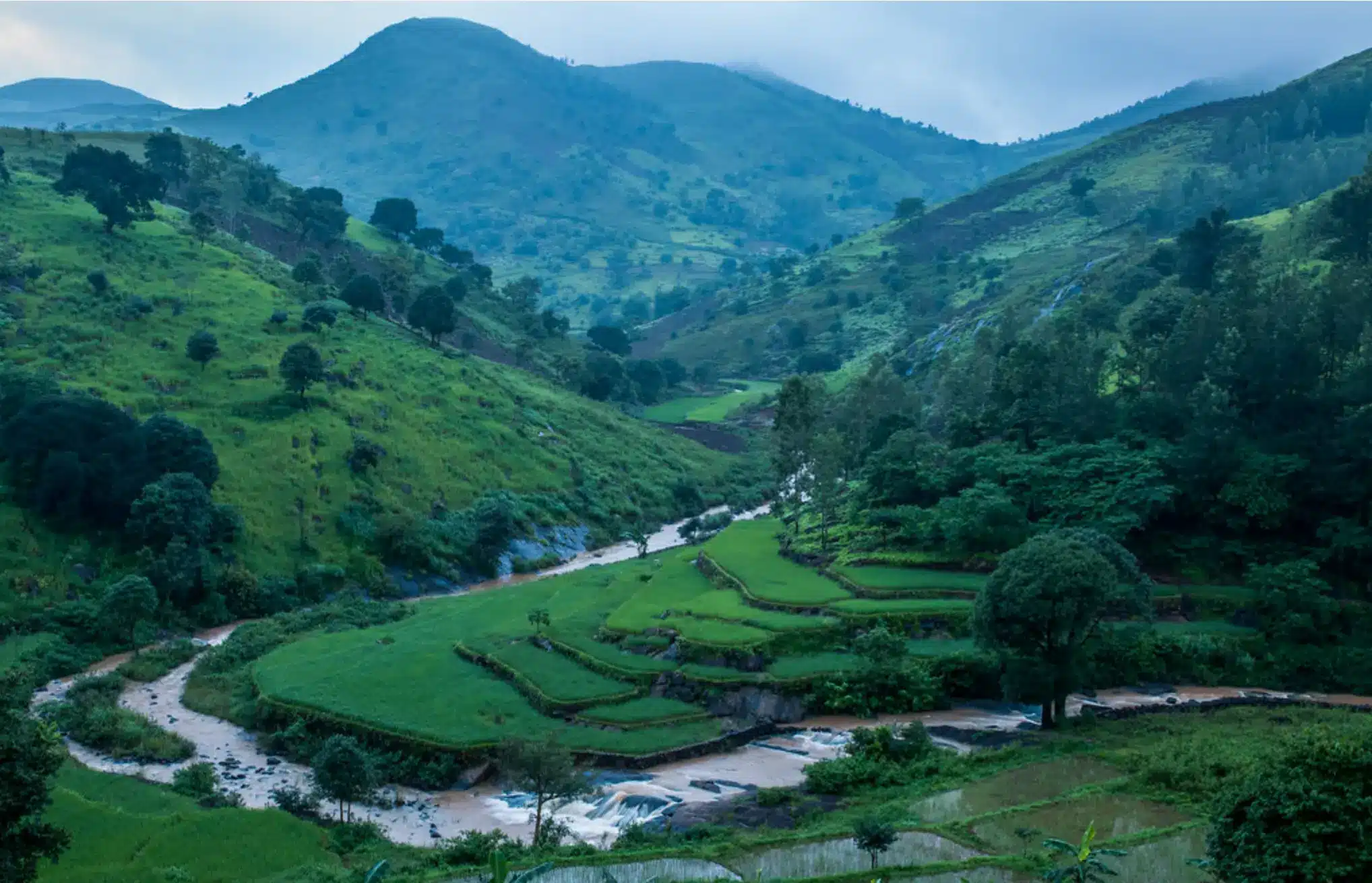
Lambasingi is a small, picturesque village in the Eastern Ghats of
Andhra Pradesh, located in the Visakhapatnam district. It is
popularly known as the
“Kashmir of Andhra Pradesh” because of its cool
climate and misty hills.
It is the only place in Andhra Pradesh where temperatures can drop
close to 0°C, and on rare occasions, people have witnessed frost
or snowfall-like dew in winter.
Surrounded by dense forests and coffee plantations, it stays misty
almost all year round.
Rolling green hills, valleys, and waterfalls make it a popular
destination for nature lovers.
Early mornings are especially magical, with clouds floating close
to the ground.